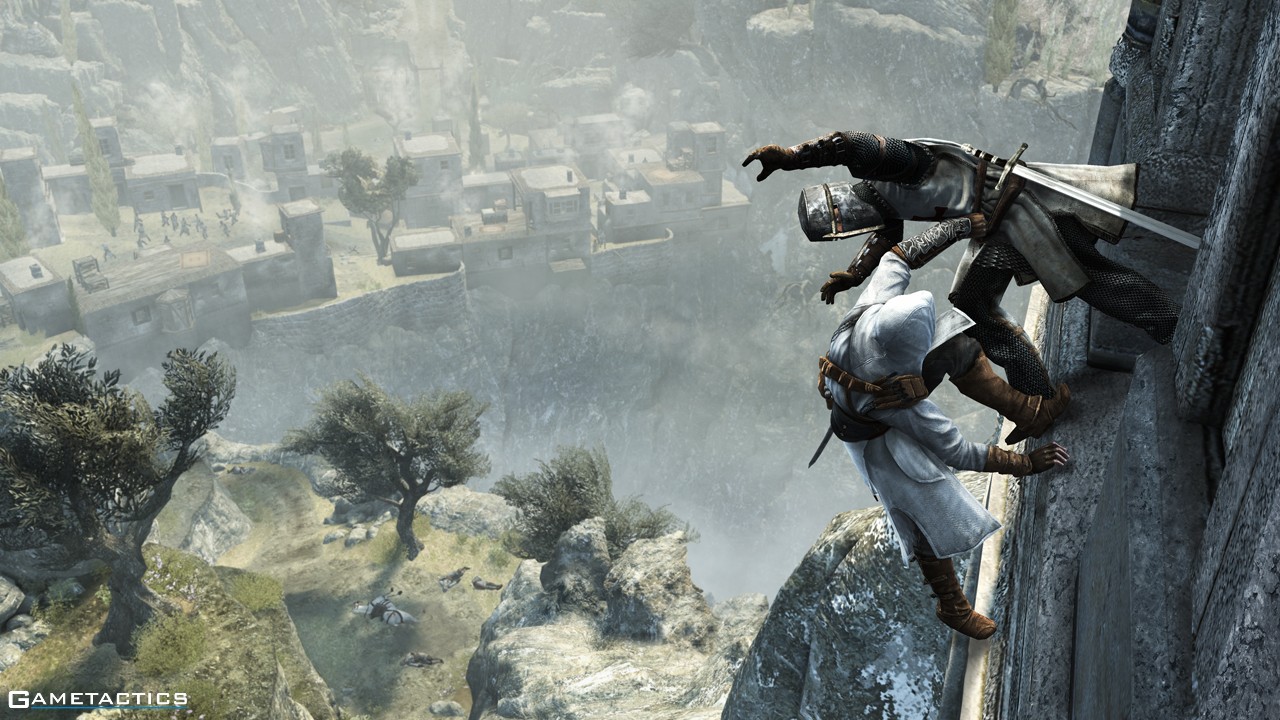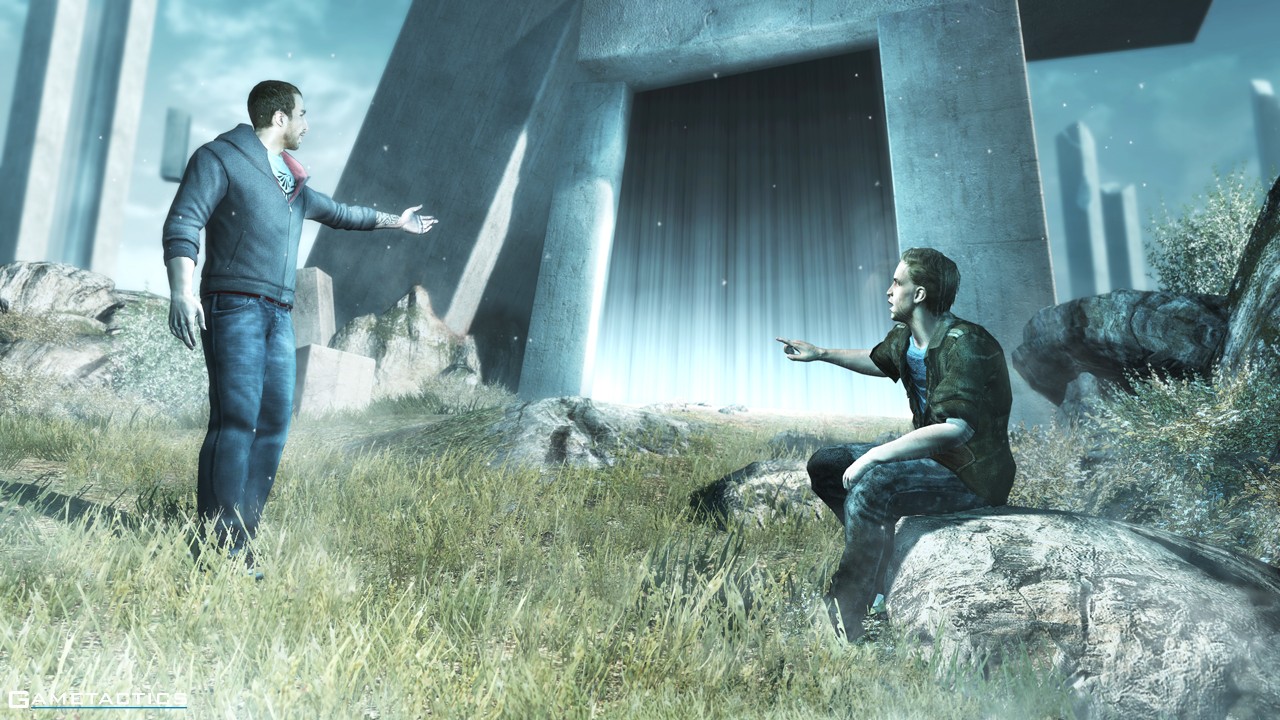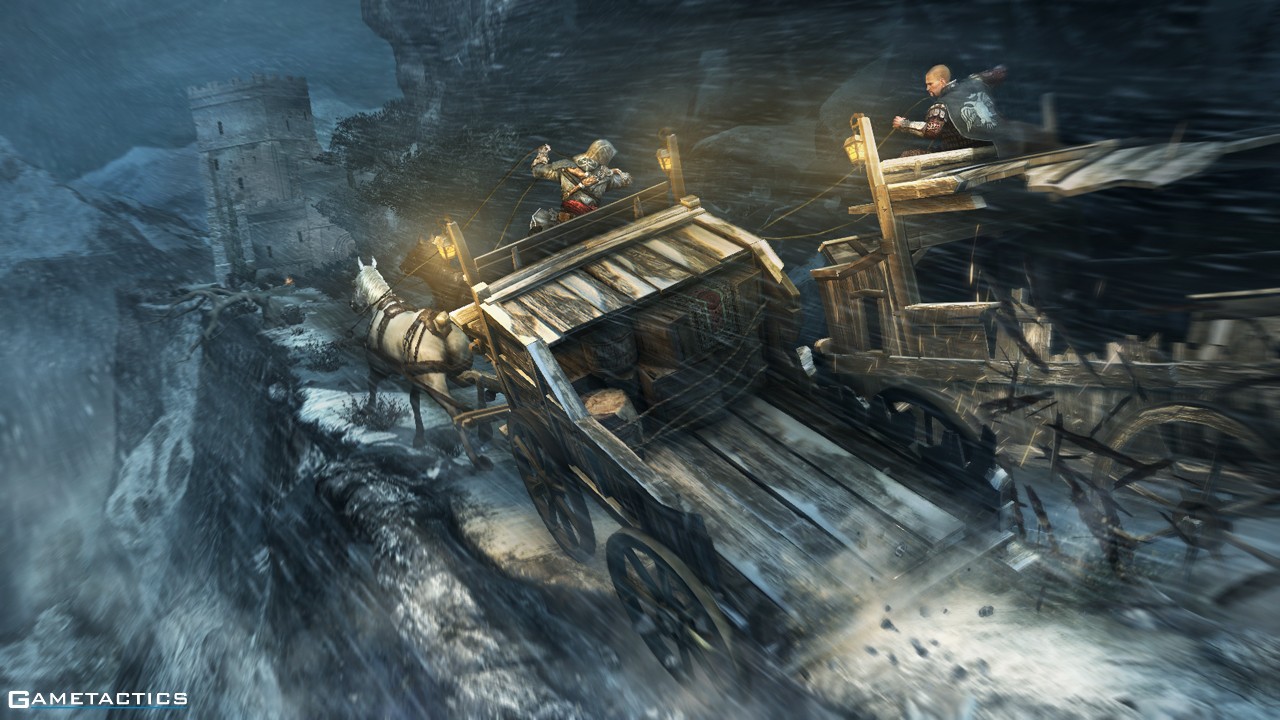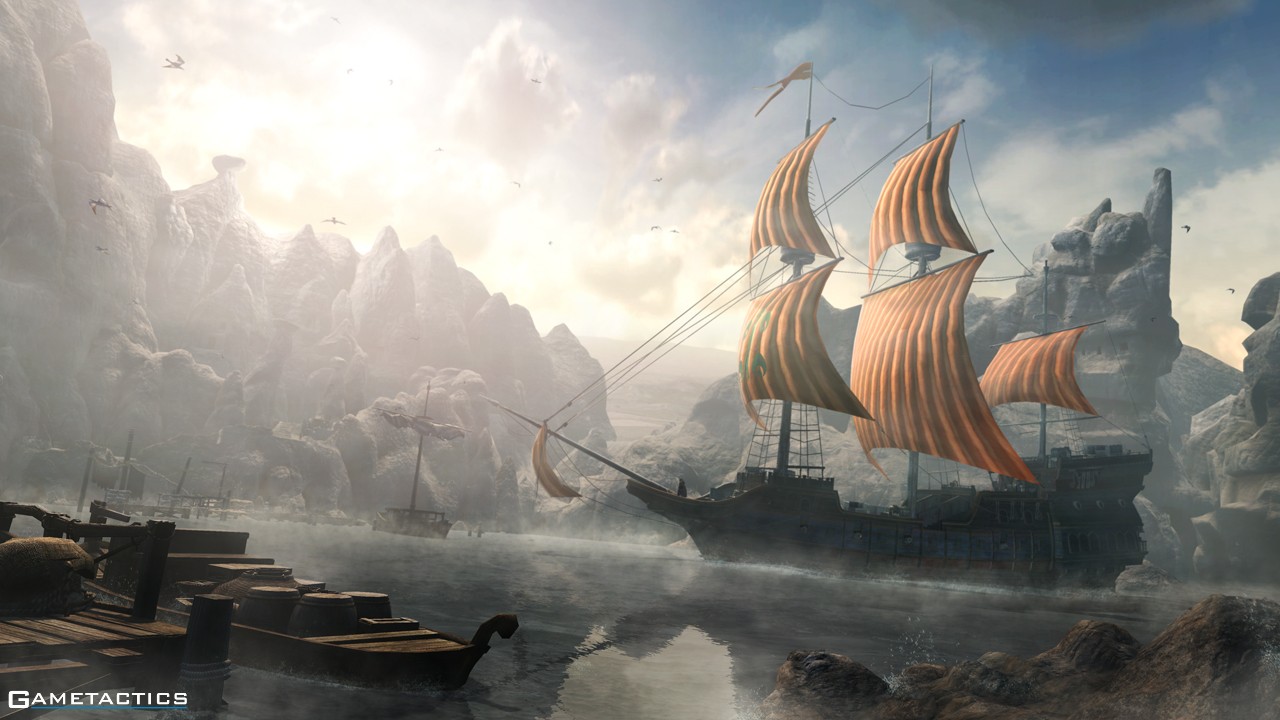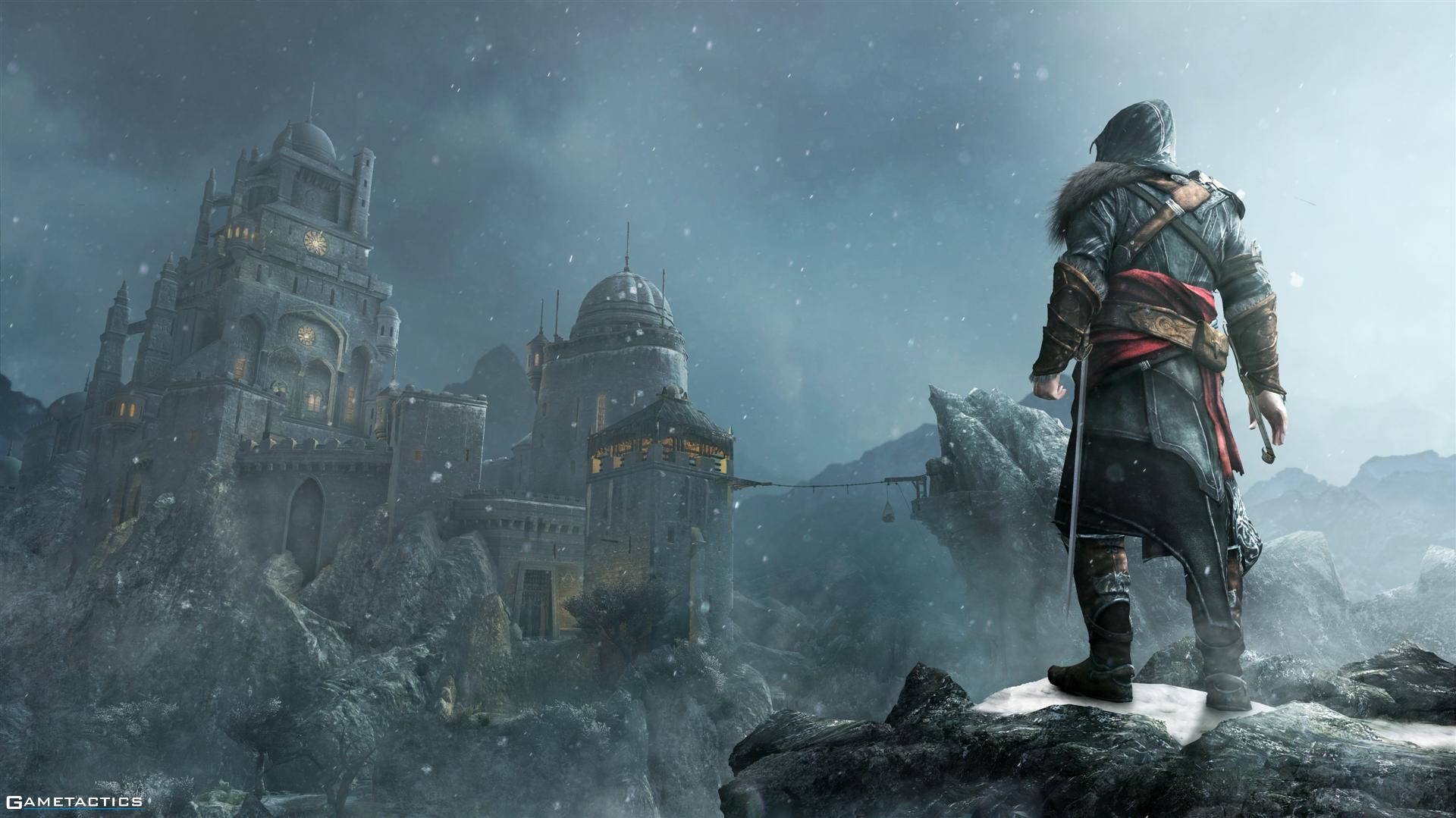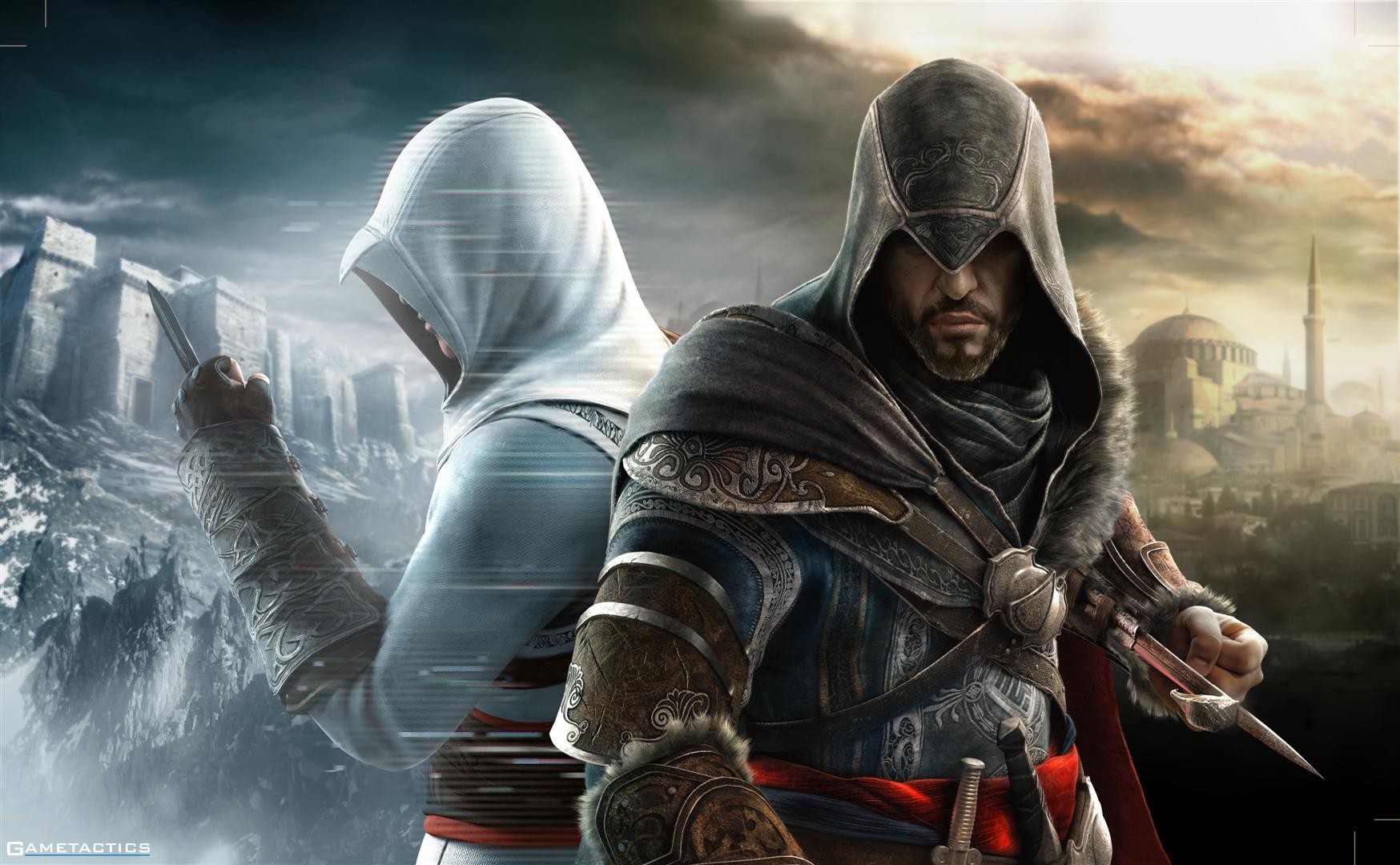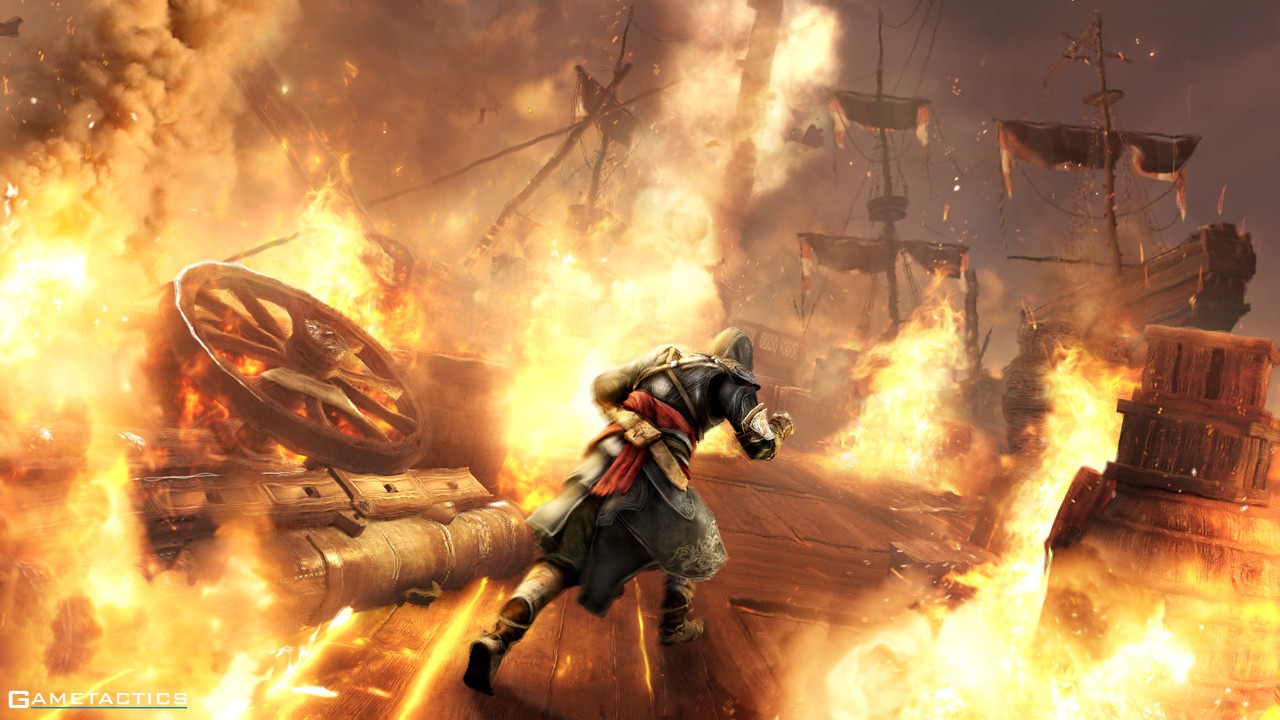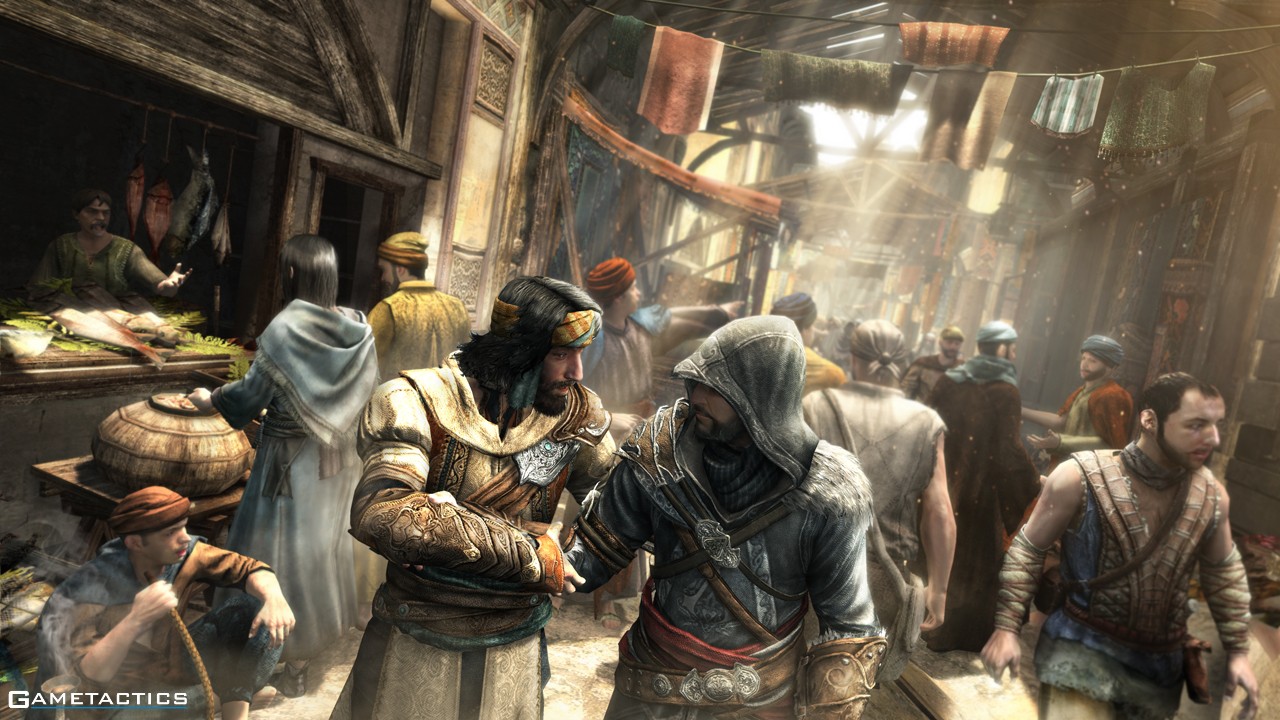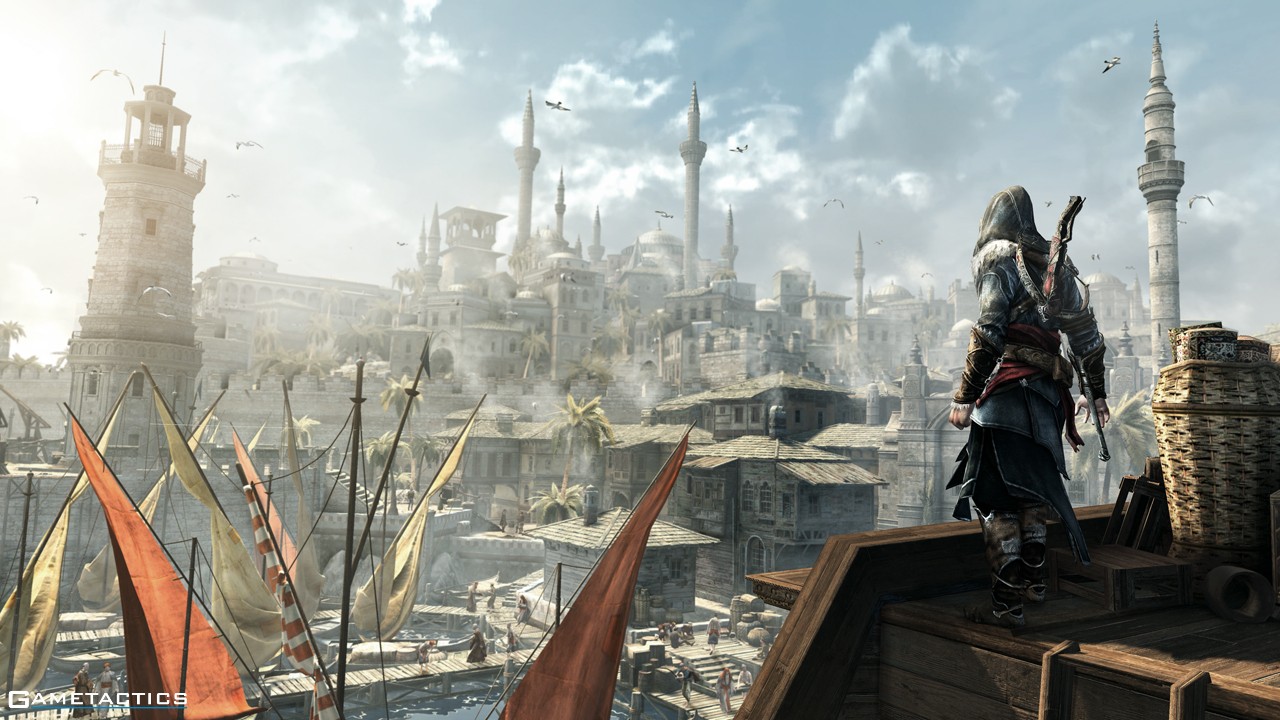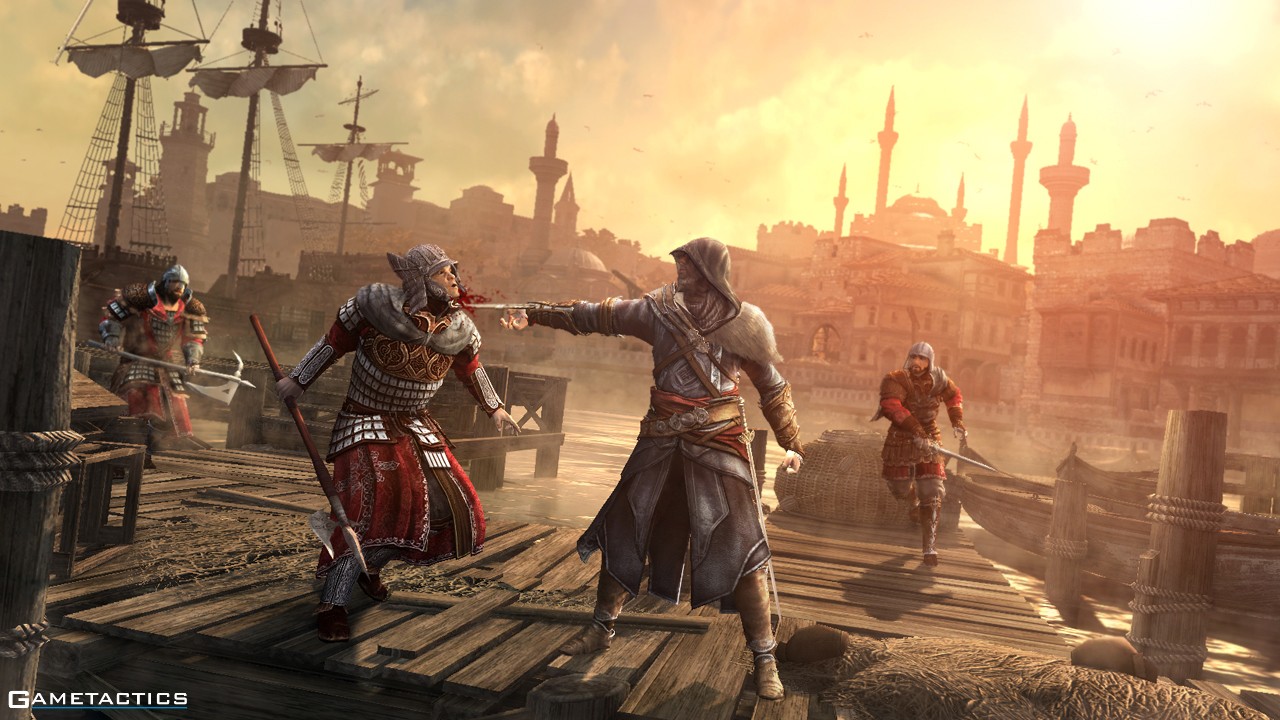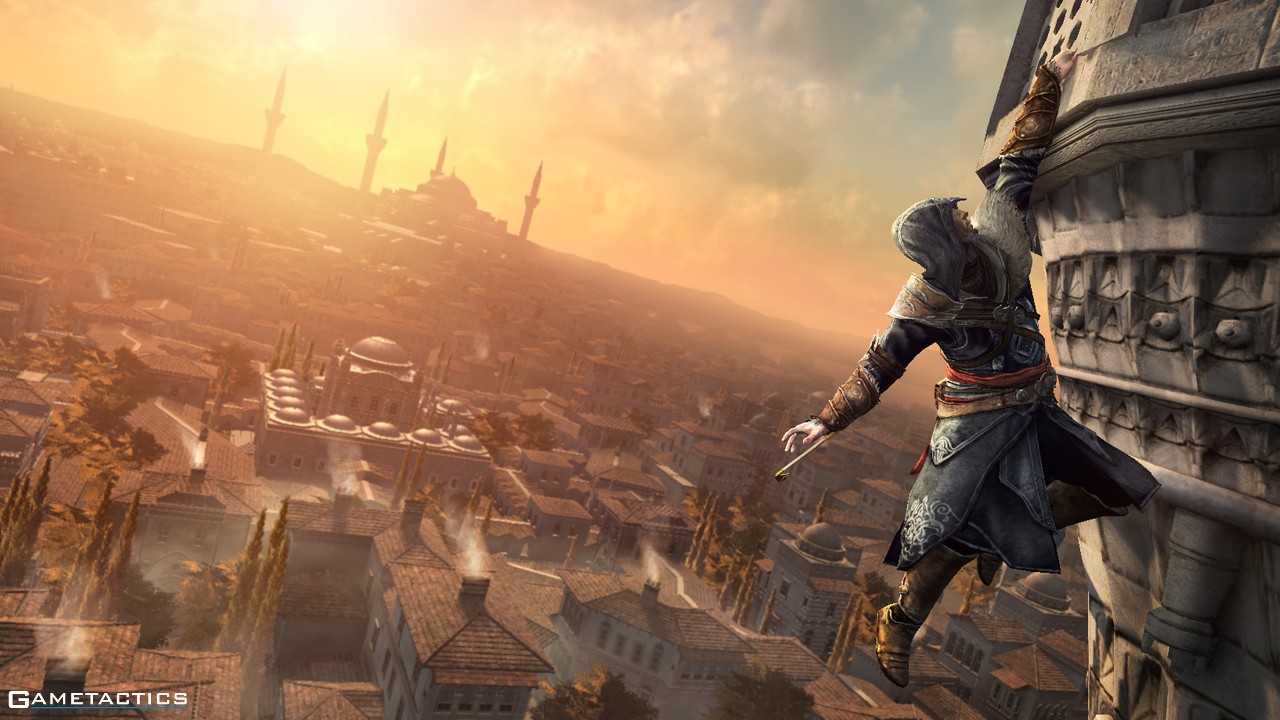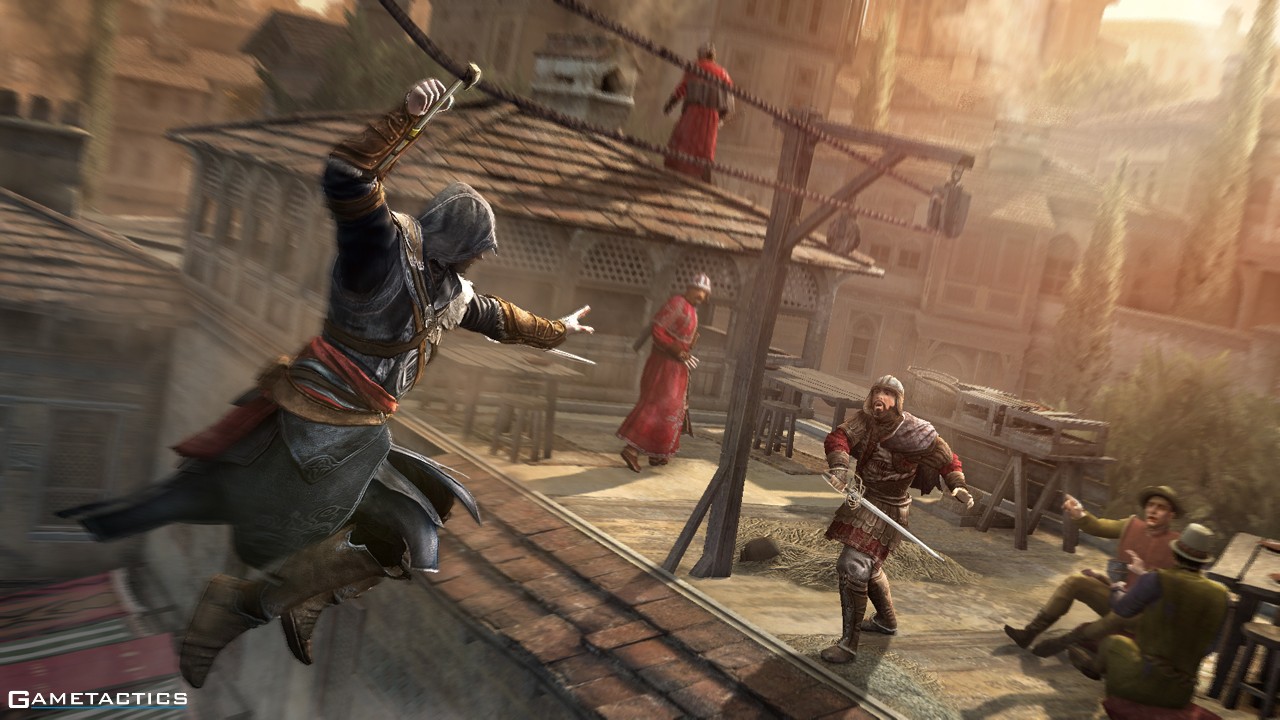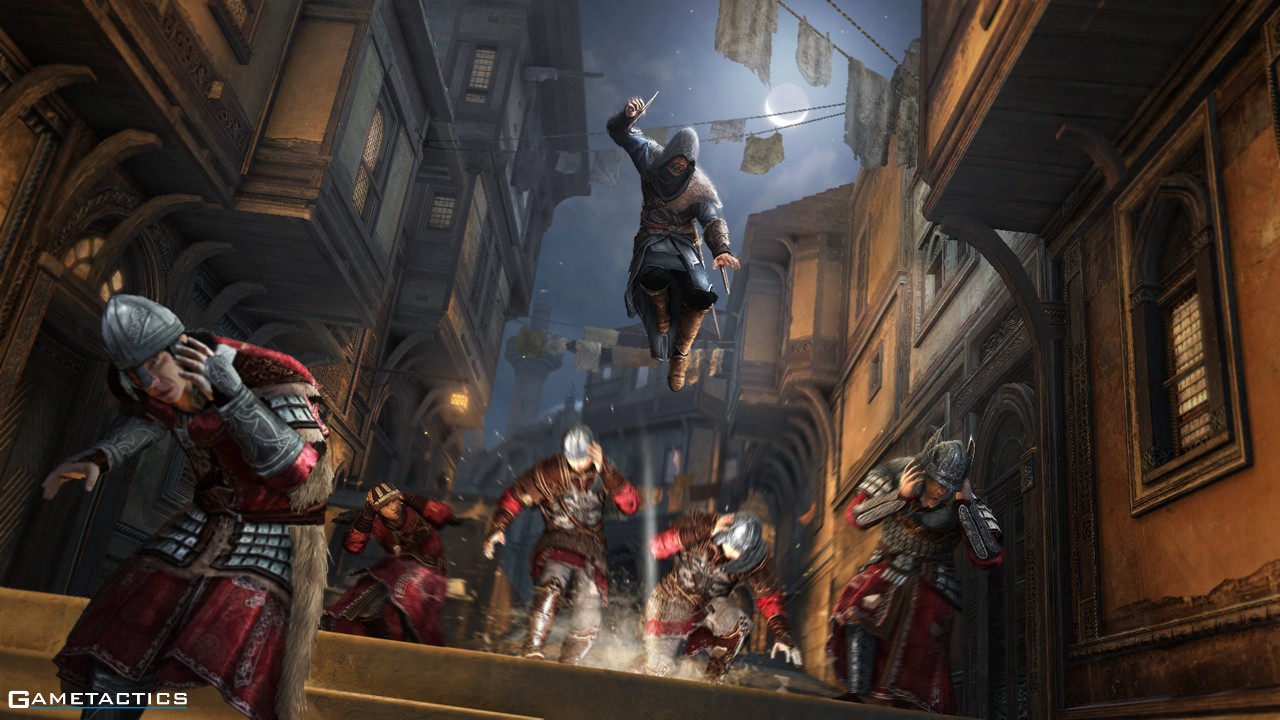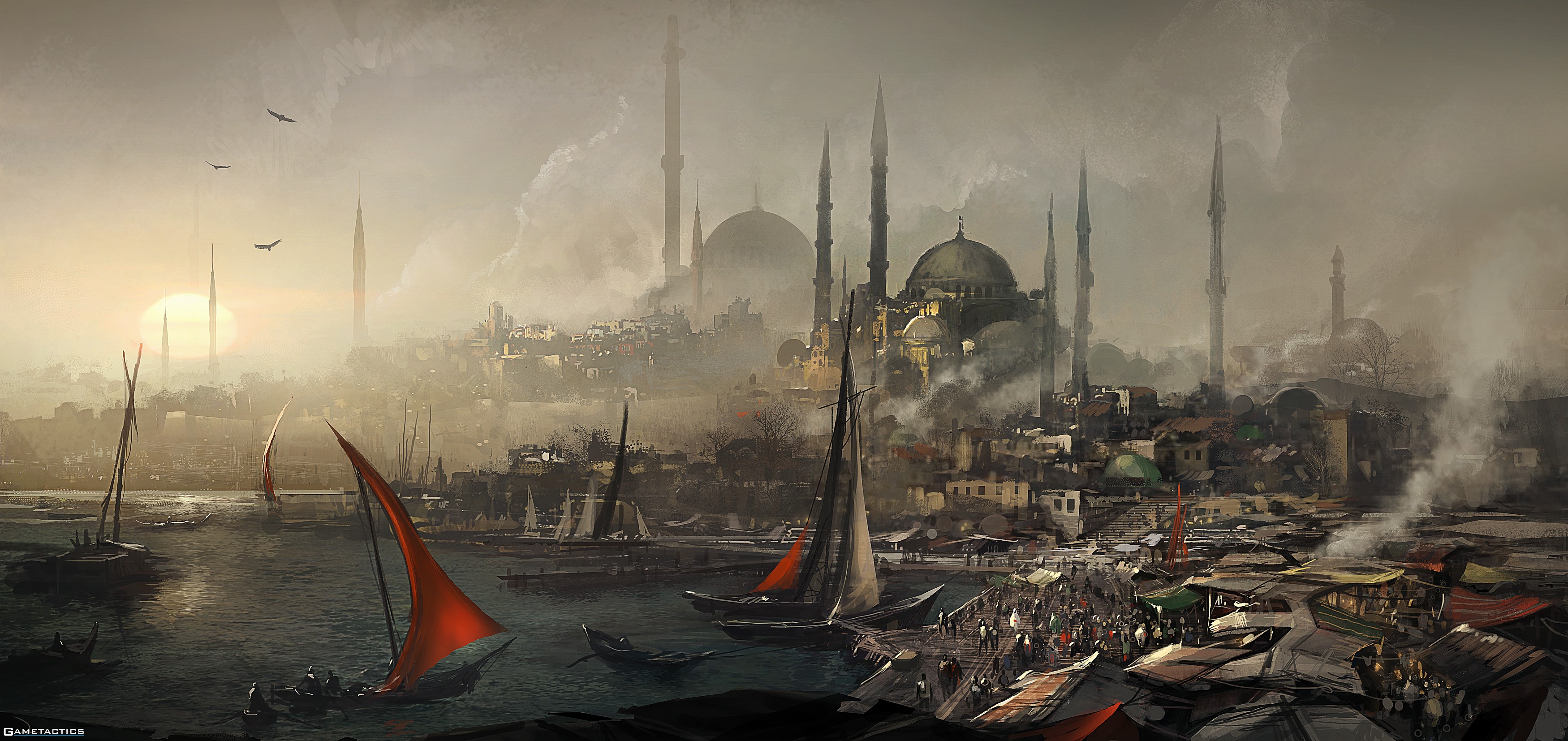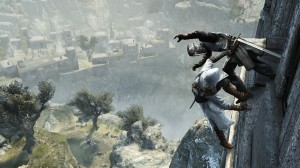 Stop me if you’ve heard this one. You take a video game series centered around stealth, with a well known protagonist that has a filled out back story, then you actually let him age to the point where he has gray hairs and a beard and.. well.. no.. it’s not Metal Gear Solid. It’s Assassin’s Creed Revelations, the latest yearly iteration of Ubisoft’s cloak and dagger smash hit. And while that little detail about Ezio’s appearance in this version may be nothing new, the way the story continues to unfold does not disappoint, for the most part anyway. The same can be said for the gameplay which is both tried and true at its core, but a bit overextended in its ambition.
Stop me if you’ve heard this one. You take a video game series centered around stealth, with a well known protagonist that has a filled out back story, then you actually let him age to the point where he has gray hairs and a beard and.. well.. no.. it’s not Metal Gear Solid. It’s Assassin’s Creed Revelations, the latest yearly iteration of Ubisoft’s cloak and dagger smash hit. And while that little detail about Ezio’s appearance in this version may be nothing new, the way the story continues to unfold does not disappoint, for the most part anyway. The same can be said for the gameplay which is both tried and true at its core, but a bit overextended in its ambition.
Revelations pulls no punches when you start the single player mode, both story wise and controls wise, so if you’re new to the series, beware. I’m not going to bother rehashing the events of the previous games as it would take a while and potentially spoil a fair bit. Instead I will say it begins right where Brotherhood left off, with Desmond (the actual protagonist of the present day) left in a coma and trapped in the Animus machine after the startling cliffhanger of the last game. Yes, unfortunately this means that not much advances in the “real world” part of the story, apart from overhearing people while within the Animus and interacting with a previous test subject also trapped in the machine. What Revelations focuses on is bringing back Altair from the very first title in the series and more closely binding his story with Ezio’s, ultimately bringing both chapters to a close. The memory dive begins with a much older, wiser Ezio sneaking into Maysaf, the iconic Assassin’s city of the first game, in search of more information on the Apple of Eden and whatever else is going on. It turns out that he needs five keys to unlock the massive door deep inside, so he ends up in the Ottoman Empire capital of Constantinople, Turkey. As he carefully navigates the divided forces of Turks and Byzantine templars, he unlocks the memories of Altair along with finding each key. This fills in the holes of what happened since the events of AC1 and establishes a better explanation of the relationship between Altair and his descendants. Ezio has his own love story that’s actually probably one of the better ones told in a video game, and his search for the keys unfolds in set pieces reminiscent of Uncharted 3, which I had just finished before this game.
The other bit of storytelling that occurs in Revelations is unlocked through collecting the Animus fragments as you play, giving a bit more of a purpose to the feather and flag hunts of the previous games. Once you collect enough fragments, you can exit out to the Animus world and play through a first person perspective, puzzle-like mode in environments vaguely reminiscent of portal. I didn’t enjoy these bits much, mostly because I don’t go for collect fests in the first place, but also because the gameplay of exploring abstract worlds while laying down blocks to traverse obstacles was rather boring. However, the reward for all that is a lot more insight into Desmond’s past and his struggle with understanding his raising as an assassin. Needless to say there is LOT here to satisfy any fan of the series up to this point, and plenty of extra reading available too as it draws on real history to flesh out the narrative.
But enough about story, how does it play, am I right? Well as I said earlier, the game kind of assumes you’ve played Assassin’s Creed before, so there are absolutely no surprises when it comes to the basics. The only control that was really changed was to give your secondary weapon a permanent button. That doesn’t mean there isn’t anything to learn, however! Ezio learns some tricks thanks to his Turkish assassin brothers. For one, he gets what’s called a hookblade. This allows the old man to scale walls a bit quicker as he can hook onto a ledge and pull himself up more gracefully than before. It also gives him the ability to ride ziplines and vault himself over guards in one smooth motion in order to aid escapes. The zipline ability makes for some cool assassination opportunities and also makes up for the loss of horses as far as getting around town quickly (though the fast travel tunnels are also handy, and this time they’re all unlocked from the start). The other thing added to Ezio’s arsenal are bombs, of which there are three types: lethal (obvious), tactical (bombs that give you an advantage or allow you to escape like smoke bombs), and diversion (bombs that distract guards with a sound or by causing a commotion with money). These are all really fun to play and experiment with, and there’s many kinds of each type to suit your style, provided you have the right materials to make them which are collected off chests or looted from bodies. It can be a bit easy when you can just poison a whole set of guards with a datura bomb or distract them away from the only entrance with a cherry bomb, but it’s nice to get away from having to take a convoluted parkour route to avoid detection. As far as controlling Ezio goes, they didn’t screw it up and they added the right twists to keep things fresh.
Unfortunately, I believe Ubisoft overreached a bit when changing the mechanics of taking over territory in the city, which while not necessary to complete the main part of the game, tends to make life easier in several ways (earning money, recruiting assassins to help, etc.) and is a pretty fun enterprise in itself. It used to be in order to release a section from templar control you just had to kill the captain, climb the tower, set it ablaze, and done, it’s yours forever. Perhaps it was just a tad too simple, I’ll agree. This time in Revelations, the templars actually fight back. Which is great and all, the problem is the way it puts you on the defense, or more specifically, the tower defense. That’s right, instead of getting down and dirty, Ezio commands forces and constructs barricades against several waves of enemies. Personally I’m not a fan of other genres so brazenly infecting a game I’m deeply familiar with and already love, so perhaps that tinges my criticism, but this was the least fun part of the game. It’s not executed particularly poorly, but the controls and positioning on forces are clunky, and visual feedback is a bit confusing. It can be hard to tell if your barricades are keeping up or falling down until it’s too late, and the camera keeps cutting away to show your troops dying dramatically instead of focusing on the task at hand. Suffice to say a good deal of thought was put into it as you have a lot of different units at your disposal that you need to counteract specific enemies, but it’s not what I play Assassin’s Creed for and I ended up dreading having to go back into what feels like a chore. Fortunately you can avoid the whole thing by managing your infamy. Templars only attack when you’ve attracted their full attention. The other way you can shut it down is by training your assassin helpers up to the highest level and assigning them to protect your holdings. In the end losing just means you have to waste the time to get it right back. If they want to include this mode in the next game there is a lot of work to do in my opinion.
Multiplayer is back again from Brotherhood’s successful debut, and it continues to be a completely original blast. Once again the developers struck gold with some new modes. My favorite is the new capture the flag or “Artifact Assault” mode. It’s relatively straightforward of course, but there’s something different about playing it in the Assassin’s universe as opposed to say Team Fortress 2. Everyone is the spy in this, and you can be cut off in your pursuit rather cruelly and you never know where the next threat is coming from since nowhere is off limits to parkour. Still, the original mode is where the game continues to shine. Having to pretend to be part of the crowd and pursuing someone slowly yet methodically is a unique joy you don’t find among the typical dreck of war shooters. If you haven’t tried it, you have to experience it for yourself. An added motivation to explore the multiplayer fare is the fact that they’ve even tied in a bit of story into it, except from the templars’ point of view, where you are actually participating in simulations at Abstergo.
The game’s engine has matured like a fine wine over the years. It handles the ever larger and ever more complex city of Constantinople with aplomb, with far draw distances when you get up and a solid framerate, as well as incredibly detailed cutscenes. I continue to be in awe of Assassin’s Creed art direction, as they do a beautiful job of recreating key monuments and constructing intricate, historically accurate apparel for all of the characters. The voice acting, outside of maybe Desmond, remains excellent and keeps you immersed in the world with the interspersal of Italian and Turkish words (I know some have been mocking it since AC2, but since I understand a bit of Italian I find it a nice touch). The rest of the sound and music as a whole is up to the standards of the series.
When you’re putting out a new game as often as Ubisoft is doing with this series, the need to justify another purchase with some new features is always a pressure, one that results in both good and bad changes. I enjoyed the new weapons and multiplayer offerings, the Den Defense and Desmond first person memory sections, not so much. Hopefully they take the feedback from Revelations and make the next one even better, but this current title brings no shame to the series and is a must have for any fan already enamored with this universe. Just don’t expect any closure beyond Ezio and Altair’s stories!
Gameplay
Graphics
Sound
Overall
Click here to buy Assassin’s Creed Revelations Online from EBgames.com

Click here to buy Assassin’s Creed Revelations New or Used for a Great Price Online from EBgames.com

